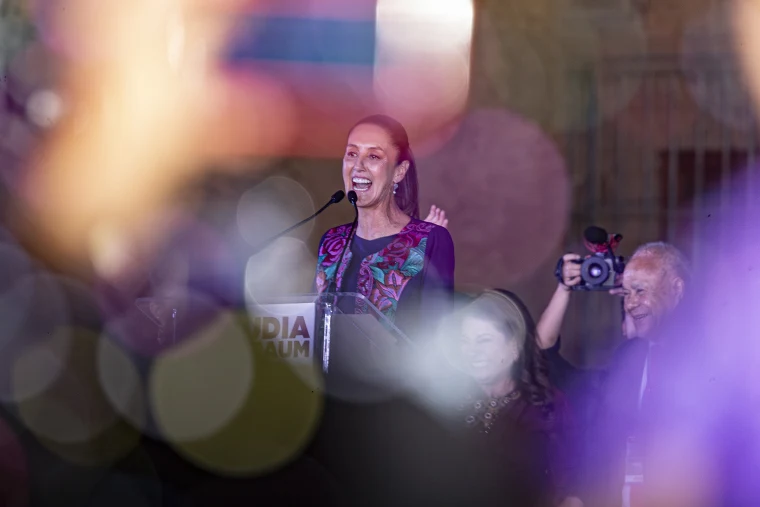
By: Mia Baranovsky, 2L
After more than two hundred years of solely male leaders, Mexico’s first female and Jewish president, Claudia Sheinbaum Pardo, was sworn into office on October 1, 2024.
Born on June 24, 1962, in Mexico City, Sheinbaum has dedicated her life to engaging in both scientific and political pursuits, inspired by her parents who were both scientists and activists involved in the 1968 Mexican Student Movement that demanded an end to authoritarianism in Mexico.
Sheinbaum’s academic career foreshadowed her advocacy in the political sector, particularly for environmental sustainability. She earned a Ph. D. in energy engineering from the National Autonomous University of Mexico and contributed significantly to the Intergovernmental Panel on Climate Change during her time as Minister of Environment in Mexico City, which earned the Nobel Peace Prize in 2007.
Her dedication to politics had propelled her to be elected as Mexico City’s first female mayor in 2018. As a lifelong leftist and climate activist, Sheinbaum successfully implemented policies aimed at improving public transportation, combatting gang violence and organized crime, and handling the COVID-19 pandemic, for which she was nominated for the World Mayor Prize in 2021 in North America by the City Mayors Foundation. Sheinbaum’s policies as mayor reflect her broader approach to governance, where she aims to balance social equity with economic development.
Sheinbaum is a member of the major left-wing populist political party, Morena, which reflects her continuous advocacy to continue the social programs initiated by her predecessor, Andrés Manuel López Obrador (AMLO), while concentrating on women’s rights amidst the femicide crisis plaguing Mexico. She also actively supports “La Cuarta Transformación”, a broad political movement aimed at addressing Mexico’s deep-rooted issues of corruption, inequality, and economic disparity. Items on her reform agenda include the expansion of social welfare programs, particularly cash transfers for vulnerable populations, and the improvement of public healthcare. Drawing on her background, Sheinbaum vows to continue advocating for environmental sustainability with goals that include implementing economic policies to support marginalized groups and indigenous communities, tackling deforestation, and transitioning the country to renewable energy sources.
Evidently as AMLO’s successor, Sheinbaum enjoys high approval from his supporters and their political party. Additionally marked by her successful track record in both academia and politics, as well as her likeability and demeanor Sheinbaum has garnered credibility and broad support across Mexico. However, like any president, Sheinbaum is also met with criticism. Some argue that her proximity to AMLO would perpetuate a continuation of his more controversial policies, particularly in relation to the militarization of public security and the recent judicial reforms that propose electing judges by popular vote. Others also question if Sheinbaum’s environmental reform goals are too idealistic for a country still heavily reliant on fossil fuels.
Despite the criticism, Sheinbaum is a globally respected leader and an inspiration for young girls in Mexico. While she has gained great support and boasts a stellar resume, the true test of her leadership will come as she works to deliver on her promises and lead the country toward lasting transformation.




